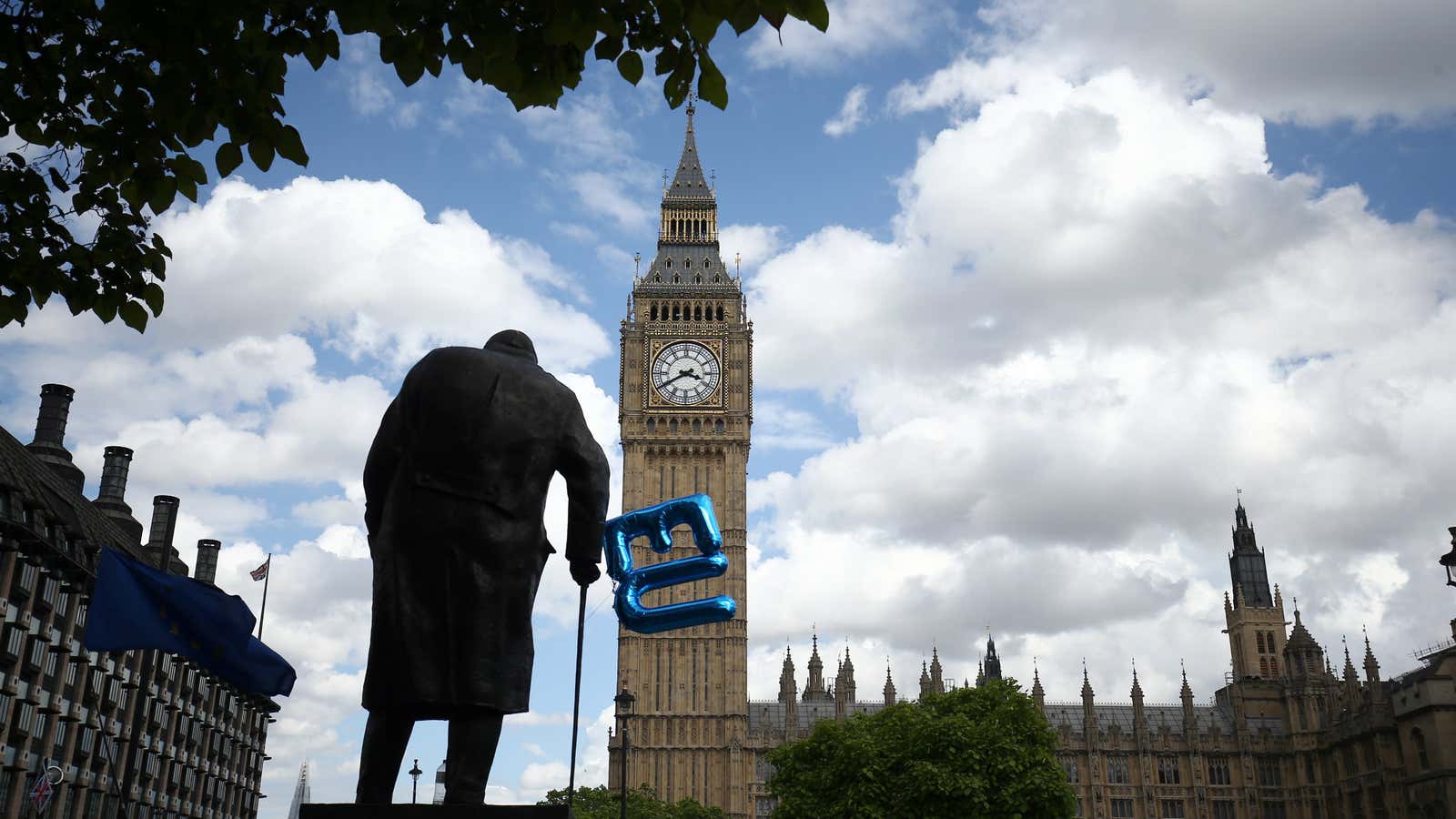British prime minister Theresa May says “Brexit means Brexit.” Beyond this mantra, the details of the UK’s divorce from the European Union are unclear.
Whatever the case, British CEOs don’t think it will be good for business. As a result of the referendum, three-quarters say that they are considering moving headquarters or other operations outside of the UK.
Negotiations haven’t even formally begun to pull the UK out the trading bloc—it will be several years before the UK actually leaves the EU. Until then, the rules, regulations, and trading agreements the UK retains with the rest of Europe will be subject to intense negotiation. Simon Collins, chairman of KPMG UK, said in a statement that policymakers should be “really concerned” about British businesses moving abroad amid the uncertainty. KPMG surveyed 100 CEOs from companies with annual sales of at least £100 million ($129 million).
“Moving headquarters abroad is radical and hits the headlines but businesses could start shifting operations abroad with little public attention,” Collins said. “We hear it time and time again that business needs certainty.”
That said, Britain’s economic prospects after the referendum don’t look as bad as many feared. Major banks and other forecasting groups have upped their forecasts recently, reversing previous calls for a recession as a result of the referendum.
Of the 100 CEOs interviewed by KPMG, 69 said they were confident with the UK’s growth prospects over the next 12 months, a larger share than were optimistic about the global economy. But would things be even better if the UK chose to remain in the EU? Seventy-two of the CEOs said they voted to stay in the bloc.
